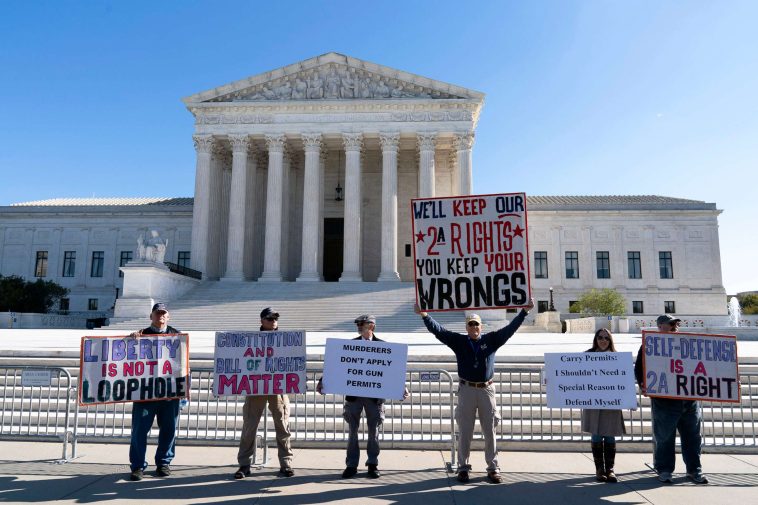In a landmark ruling out of the state of Washington, a judge decided that the prohibition on magazines capable of holding in excess of 10 rounds contradicts the constitution. However, while the decision was a significant victory for defenders of the Second Amendment, the celebration was short-lived. The Washington Supreme Court promptly responded with an emergency appeal that temporarily halted the judge’s decision, ensuring the controversial ban remains in place for now.
The unfolding drama began on a seemingly ordinary Monday when Cowlitz County Superior Court Judge, Gary Bashor, made an announcement that sent ripples through the national conversation on gun control. The legal challenge had been brought by a local gun shop within the state. They had taken the bold step to sue the governing body of their state after an arguably contentious law was passed in 2022 prohibiting possession of magazines that carry more than a designated 10 rounds.
During the hearing, Judge Bashor swept aside the arguments put forth by the state. These arguments maintained that these high-capacity magazines were not a requisite for self-defense, and that the legislative changes were grounded in logic and safety. Bashor’s 55-page decision thoroughly refuted these claims.
Deep within his comprehensive written judgment, Bashor elucidated on a key finding. The larger capacity magazines, referred to as LCMS in legal and political circles, came under the category of ‘arms’ according to the State Constitution. This fact was crucial since it meant these items were indeed used and owned by the general public for lawful motives.
Judge Gary Bashor, who took up the mantle of judge in this rural belt back in 2011, did not restrict his rationale to the current state constitution. In his landmark ruling, Bashor delved deeper and analysed the intent of the Founding Fathers themselves when it came to firearms.
Bashor keenly stated, ‘The Founding Fathers demonstrated no desire to restrict gun rights. While they couldn’t possibly know about the specific weaponry available in today’s world, they implicitly acknowledged and anticipated technological progress in armament.’ His words echoed the sentiments of those who ardently uphold the Second Amendment.
However, things took a distinct turn after Bashor’s ruling. Supreme Court Commissioner Michael Johnston of Washington State made a decisive move. Aligning with Ferguson, he chose to uphold the controversial law while the appeal proceedings continued.
This clampdown on magazine size is just one piece of a larger puzzle. Over the past several years, other stringent gun control measures have been enacted by Washington’s Democratic-controlled legislature in alignment with the state’s Democratic Governor Jay Inslee.
These measures encompass prohibitions with far-reaching effects, including a ban on the sale of AR-15s along with rifles bearing similar technological specifications. Those supportive of such sweeping changes argue that these rules are necessary for public safety, while detractors feel they infringe upon the Second Amendment rights.
Through all this, the debate around gun control in Washington State and across America writ large shines a light on the intricate yet vitally important nature of balancing constitutional rights and personal safety. What emerges is a substantial challenge to reconcile these two deeply ingrained values in today’s increasingly concerned society.
It’s evident that the recent ruling from Judge Bashor, despite drawing ire from some sections and applause from others, represents a critical moment in this broader discussion. Naturally, the court’s decisions have the potential to serve as a precedent and significantly sway the ongoing narrative around gun control.
At present, all eyes remain on the Washington State Supreme Court as it deliberates the appeal. Their decision will likely have a far-reaching impact, coloring the nation’s discourse and legislation on gun control for years to come.
Yet, through it all, we are reminded of the value and meaning of our Constitution and the continuous task of understanding and adapting it to our evolving society. This case represents yet another critical juncture in the American narrative as we grapple with the difficult task of maintaining a balance between personal freedoms and social responsibilities in the modern age.
In conclusion, irrespective of one’s viewpoint on the matter, it’s essential to recognize that issues such as the magazine restriction debate form the fiber of our democratic process. They challenge us, they confront us, and they ultimately help us shape the future contours of our nation, contributing towards an evolving definition of ‘We the People’ in the 21st century.



